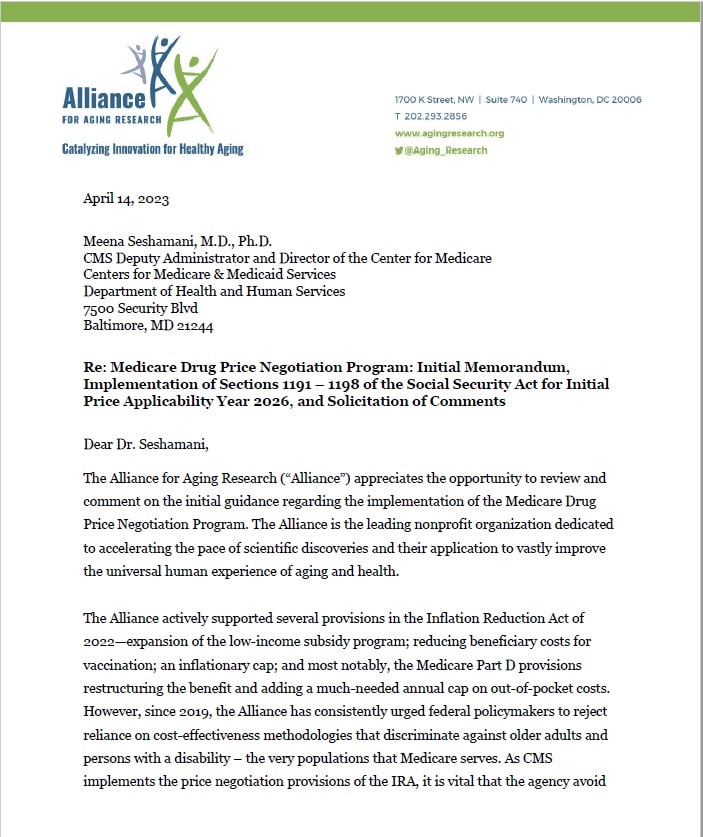Alliance Feedback to CMS on Negotiation Program: Patients — Not Maximum Savings — Must Remain First Priority
Published April 14, 2023
The Inflation Reduction Act of 2022 gave the Medicare program the power to negotiate prices for dozens of drugs. In doing so, Medicare will create a calculation to decide the “maximum fair price” they’re willing to pay for a drug.
The Alliance for Aging Research responded to a request for information from the Centers for Medicare and Medicaid Services (CMS) that asked for feedback on how this new Negotiation Program will be implemented. Our comments focused on protecting patients’ access to care and sharing that it is essential that Medicare must avoid calculating the value of these drugs and therapeutics based on discriminatory methodologies like the Quality Adjusted Life Year (QALY), and the Institute for Clinical and Economic Review’s (ICER) equal-value life year’s gained metric due to their discriminatory impacts on older adults and individuals with a disability.
Further, the Alliance asked that patients be included at all steps of the negotiation process and that Medicare create a system for evaluating how the program has impacted patient access to care following its implementation.
Lastly, we noted that Medicare should prevent participating plans from using utilization management techniques such as step therapy for drugs subject to negotiation, since Medicare will have established that the program is paying appropriately given the clinical benefit of the treatment.

